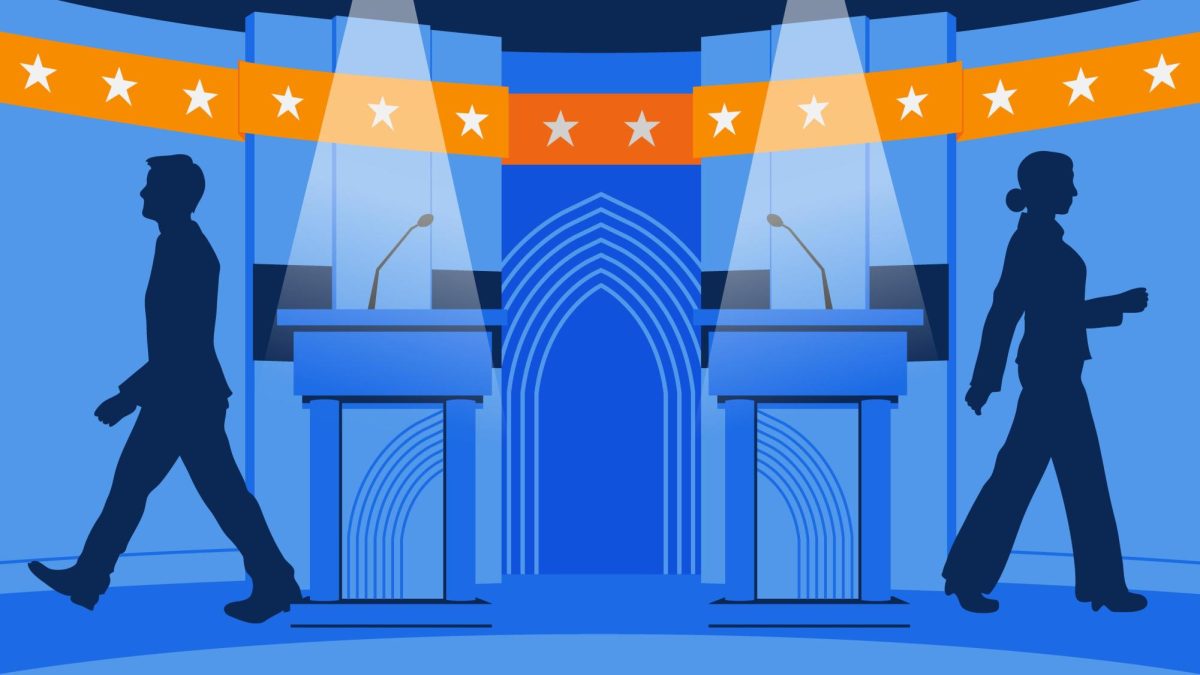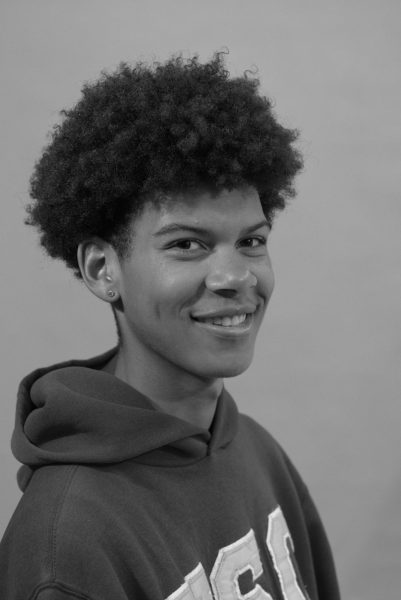On Friday, October 18th, Mr. Gomez’s AP Government and Politics class hosted Ms. Reed’s AP Psychology class in a robust exchange of ideas surrounding the topic of birth control access and privacy rights. I took a break from my regular Arts & Entertainment beat to cover this event. The question at the center of this debate was, “Should teenagers need parental consent to access birth control?” AP Psych opted for affirmative, whilst AP Gov was left with the negative.
In their first argument, AP Gov identified a common theme of a “Problematic Slippery Slope.” Lack of body autonomy, individual freedoms, and the contradiction of the Fourteenth Amendment were all proven to become a “Slippery Slope,” if access to birth control depended on parental permission. I asked AP Gov students Shen-Tao Tien-Crawley ’25 and Andre Baraglia ’26 about their opinion on the importance of debates such as these. Tien-Crawly responded: “I don’t plan on going into the humanities field, however, I still think debates like these are a good way to learn how to argue and understand a topic—those are skills you have to use in every field.” Baraglia affirmed his belief saying “I think they’re very beneficial, they help to show our practices in real-world environments, and they are a very good way to get out of the normal textbook work and put the stuff we learn to use.”AP Gov pupil Matias Moore ’26 chimed in to share his support of Mr. Gomez, declaring, “I really think that all classroom environments can benefit from the views of other people. It’s a very enlightening experience for all your peers, including yourself, to learn more and have a great experience—especially in a competitive, AP environment.”
On the other side, AP Psych insisted that allowing youth to access birth control without a parent’s permission would be limiting a parent’s rights and freedom of religion. Expanding upon this idea of infringement on the freedom to practice religion, the AP Psych argumentative speaker pointed out how some religions do not allow birth control to be used, and by taking away a parent’s ability to know whether or not their child is using birth control, you can in a way be disrespecting a family’s religion. Leila Nurr ’26, an AP Psych scholar, spoke during the debate expressing her support for AP Psych’s participation in the activity, proclaiming, “More interactive ways of learning are really helpful to me and it’s nice to mix it up from a regular classroom environment.”
In the end, AP Gov won, according to guest judges Vice Mayor Mark McGovern, and State Representative Steve Owens. Vice Mayor McGovern applauded the students and called for the expansion of initiatives like this saying, “I think we should be using this format in every level, not just AP, there’s such great skills; you have to be able to build an argument, articulate an argument, rebut when somebody says to you when you disagree. ” Representative Owens echoed his sentiment, remarking, “I think this was fantastic, they had to do all their research [and] think on their feet, it’s really impressive to see how the students put them all together to do their great presentations, it’s not always easy to do these argumentative presentations.”














